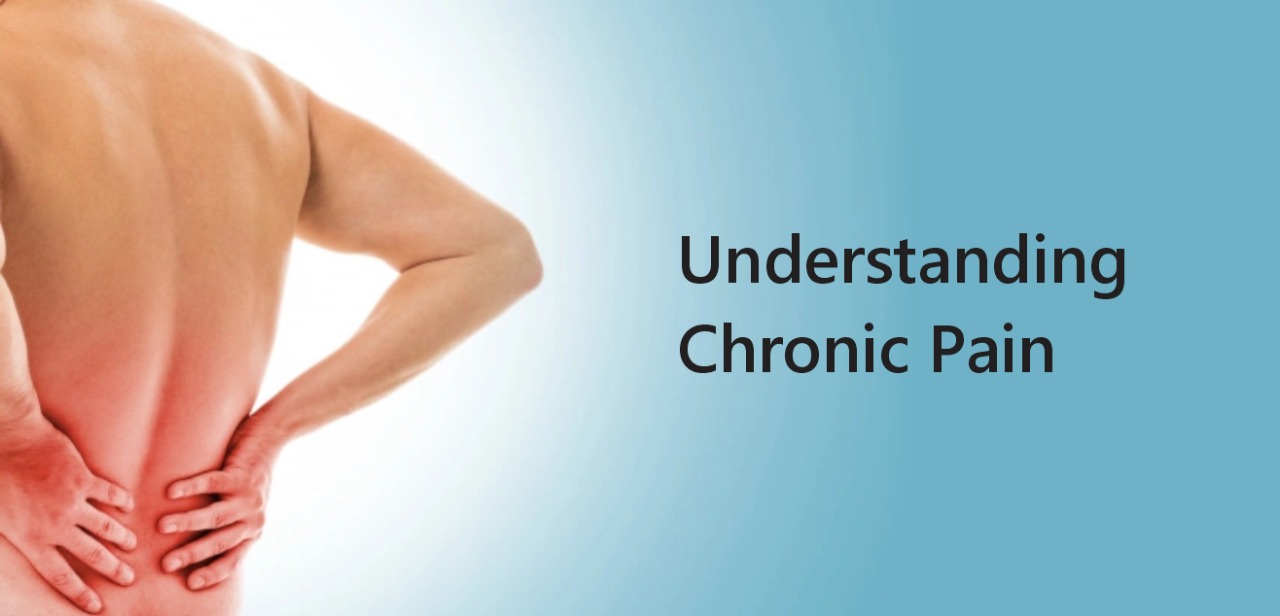

Pain that persists over an extended period of time is unlike any other. Want to understand the science behind the ‘ouches’ you feel, read on!
When it comes to depicting pain,unpleasant feelings and the intrusive aspect of the pain itself is expressive enough. Pain torments caregivers and patients, both!
Neither doctors nor patients like to deal with chronic pain since it interferes with every area of their lives. Chronic pain is the symptom that draws the most patients into clinics, but it is also the symptom that makes doctors feel the most helpless as healers.
Many patients complain of pain that isn't related to tissue damage or any other obvious pathophysiological reason, and it's difficult to tell if they're experiencing this discomfort because of tissue damage or anything else. Wondering if diagnostics can assess pain? Sure, they do and Assurance can help you with that. Book a diagnostic test today from the comfort of your home and will do the needful.
How to understand chronic pain?
A sensory dimension — where does it hurt and how much does it hurt — an emotional dimension — how unpleasant is the experience — and a cognitive dimension — how do we interpret the pain based on our previous experiences, does it cause fear and anxiety, and how do we respond to the threat posed by pain — are all important to consider. Any person could report a painful experience that the clinician they meet and to whom they turn for explanations and comfort can not easily understand.
Consult a doctor with Assurance if you feel the pain you are experiencing is turning chronic!
Furthermore, the line between health and this type of disease is blurred. Most of us only feel pain for a short time. Many of us suffer from chronic illnesses that aren't severe enough to impair our daily lives.
There is a good chance that acute pain will be caused by tissue injury, a condition known as nociceptive pain or "pain that results from damage to non-neural tissue and is activated by nociceptors." To put it another way, defective tissues in the periphery generate a signal, which is then sent to brain regions that receive it via dorsal horn pain transmission neurons. An injury or disease to the sensory nervous system can result in neuropathic pain, which is "pain induced by the nervous system itself."
If you have diabetes or any other chronic disease, turn to our disease management programs curated especially to help people like you out.
It's common to use "chronic pain" to describe discomfort that lasts longer than three months. Chronic pain is virtually always caused by central sensitization, but the degree can vary. However, any combination of the three mechanisms — nociceptive, neuropathic, and central — may exist in a specific individual. People's perceptions of chronic pain vary widely based on the context and significance of the pain as well as their psychological well-being. Psychological and cognitive factors significantly impact how people perceive pain, and these links may be found in the connections between the brain regions that control pain perception, attention, and emotion.
Chronic pain can take many forms. Here are a few examples:
- Headache
- The discomfort that follows surgery
- Post-traumatic stress disorder also commonly known as PTSD
- An ache in the lower back
- The discomfort caused by cancer
- Rheumatoid arthritis ache
- Pain that is caused by dysfunction in the nervous system (pain caused by nerve damage)
What is the best way to deal with long-term pain?
The primary goal of treatment is to alleviate pain and increase mobility. This makes it easier for you to get back to your normal routine.
Chronic pain's intensity and frequency might vary widely from person to person. As a result, clinicians craft pain treatment strategies that are unique to each individual. Your pain treatment approach will be determined by your symptoms as well as any underlying medical issues. Chronic pain can be treated with medical therapies, lifestyle changes, or a combination of these approaches.
Chronic Pain Medication:
- A number of different drugs can assist in the treatment of chronic pain. As an illustration, consider the following situations:
- Nonsteroidal anti-inflammatory medicines (NSAIDs), such as aspirin (Bufferin) or ibuprofen, are over-the-counter pain treatments (Advil).
- Morphine (MS Contin), codeine, and hydrocodone are examples of opioid analgesics (Tussigon)
- Analgesics used as adjuvants, such as antidepressants and epilepsies
- Chronic pain treatment methods in medicine
- Chronic pain may be alleviated with certain medical procedures. Several examples come to mind, such as:
- Small electric shocks are delivered to your muscles as part of electrical stimulation, which decreases discomfort.
- Injections that limit the nerves' ability to convey pain signals to the brain
- The use of acupuncture needles, which are inserted into the body to ease pain
- Address injuries that have healed incorrectly and are causing you discomfort through surgery
- Chronic pain management through a healthy lifestyle
Chronic pain can also be alleviated through a variety of lifestyle changes. Some examples are as follows:
- The treatment of musculoskeletal disorders
- The practise of t'ai chi
- Yoga
- Therapeutic uses of art and music.
- Animal-assisted therapy
- Psychotherapy
- Massages
- Meditation
Everyone has to deal with pain at some point in their lives because it's both a sensory and an emotional experience.
How can Assurance help me?
Assurance by NanoHealth provides Disease Management Programs, including PCOD care, infertility, Heart care, etc.
Why us? Our AI-driven initiative helps timely identification, diagnosis, and treatment by pairing you with the proper care providers.
Our disease care management programs include:
- Regular interactions with your health coach for treatment adherence.
- Periodic doctor consultations to ensure effective treatment.
- Routine blood tests to track the progress and improvements.
Book an appointment with healthcare specialists from anywhere & anytime today to get carefully assessed and curated disease management plans to headstart your healthy lifestyle. Head over to our website nhassurance.com and consult a specialist today!
